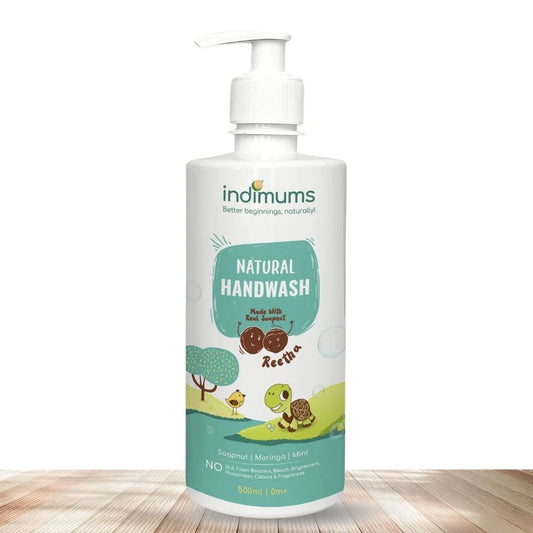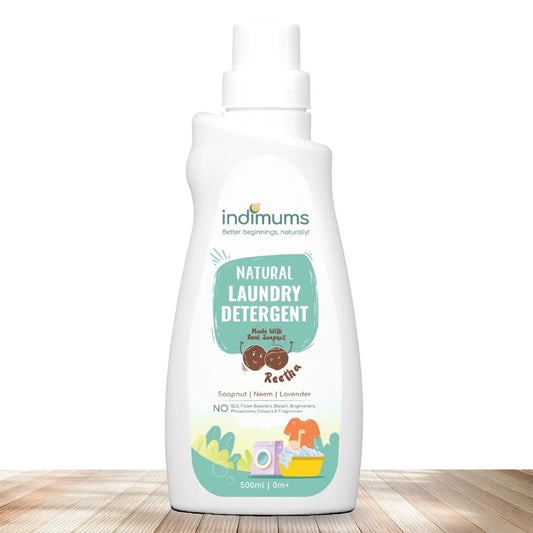Bringing a new baby into the world is a delightful moment, but when your little one is diagnosed with eczema, it can pose unique challenges. Managing baby eczema requires a gentle skincare routine and the right preventive measures to keep flare-ups under control.
Eczema is a common skin condition characterized by red, itchy rashes, demanding special attention and care. Understanding the eczema do’s and don’ts is crucial in ensuring your baby’s skin remains healthy and comfortable. In this blog, we will explore remedies for baby eczema and essential tips to help parents navigate this journey with confidence.
How to Manage Baby Eczema: Best Practices & Mistakes to Avoid
Dos:
1. Consult with a Pediatrician or Dermatologist: For an accurate diagnosis and personalized treatment plan for your baby's eczema, seek professional medical advice from a pediatrician or dermatologist.
2. Use Fragrance-Free and Hypoallergenic Products: It is recommended to choose baby products that are gentle, fragrance-free, and hypoallergenic. Opt for mild soaps, detergents, and moisturizers to minimize the risk of irritation.
3. Maintain a Consistent Skincare Routine: It's important to establish a consistent skincare routine for your baby that includes regular moisturizing to keep their skin hydrated and prevent flare-ups.
4. Dress Your Baby in Soft, Breathable Fabrics: It is recommended to dress your baby in soft, breathable fabrics such as cotton, and avoid using wool and synthetic materials as they may cause skin irritation.
5. Keep Nails Short to Prevent Scratching: It's important to keep your baby's nails short to prevent them from accidentally scratching and causing harm to their delicate skin. Consider using mittens during sleep to reduce the risk of unintentional scratching.
6. Identify and Avoid Triggers: Collaborate with your healthcare provider to pinpoint and avoid potential triggers for your baby's eczema, such as certain foods, allergens, or environmental factors.
7. Gentle Homecare Product Choices: Homecare products can cause allergies due to the presence of harsh chemicals and synthetic fragrances, which may irritate the respiratory system and skin, triggering allergic reactions. Additionally, some products may contain allergenic ingredients that, when inhaled or in contact with the skin, can contribute to the development or exacerbation of allergies.
Don'ts:
1. Avoid Harsh Soaps and Detergents: It is important to avoid using harsh soaps or detergents that can strip the skin's natural oils. Instead, opt for gentle, fragrance-free options to prevent irritation.
2. Refrain from Overbathing: It's important not to bathe your baby too often as excessive bathing can dry out their skin. Stick to short, lukewarm baths and moisturize immediately afterward.
3. Skip Tight or Irritating Clothing:It is recommended to dress your baby in loose-fitting and comfortable clothing to prevent any friction and irritation against their skin.
4. Avoid Excessive Scrubbing:After bathing your baby, avoid vigorously scrubbing their skin and instead gently pat it dry to avoid worsening eczema symptoms.
5. Limit Exposure to Potential Allergens:It is important to consult with a healthcare professional before exposing your baby to potential allergens. When introducing new foods, be cautious and monitor for any adverse reactions.
6. Don't Self-Diagnose or Self-Medicate: It is important to consult a healthcare professional before trying any new treatments for your baby's eczema, instead of self-diagnosing or self-medicating.
Soapnut aka Reetha as a natural choice for allergen-free products:
Soapnut, which is also known as Reetha, is an excellent natural option for those who are looking for hypoallergenic products. These products are specifically designed to minimize the risk of allergic reactions, making them perfect for babies with sensitive skin. Soapnut-based products offer a gentle and natural alternative that makes use of the cleansing properties of soapnuts without compromising on effectiveness.
Some of the products that can be formulated with Soapnut include Baby Body Wash, Baby Shampoo, and Baby Laundry Detergent. By incorporating these products into your baby's skincare routine, you can ensure a soothing experience that minimizes the risk of allergic reactions.
Look for labels that explicitly mention "soapnut-based" or "derived from soapnuts" to ensure that you are making a hypoallergenic and nurturing choice for your little one.
Final words:
Taking care of a baby with eczema can be challenging, but it's essential to be diligent, patient, and proactive. To ensure that your baby's skin remains healthy, it's important to follow the dos and don'ts while creating a nurturing environment. It's always recommended to consult healthcare professionals for personalized guidance and advice on managing your baby's eczema effectively.




